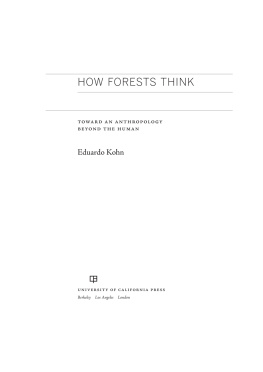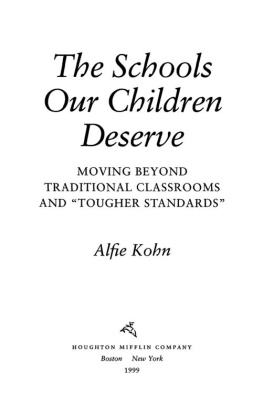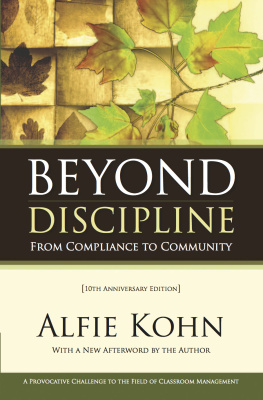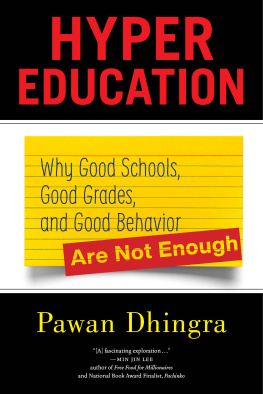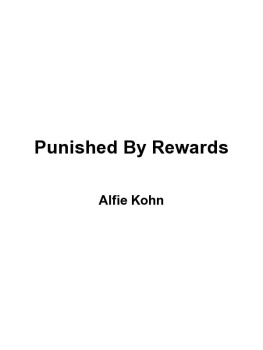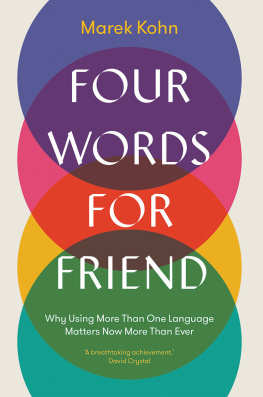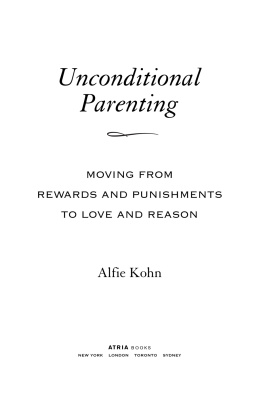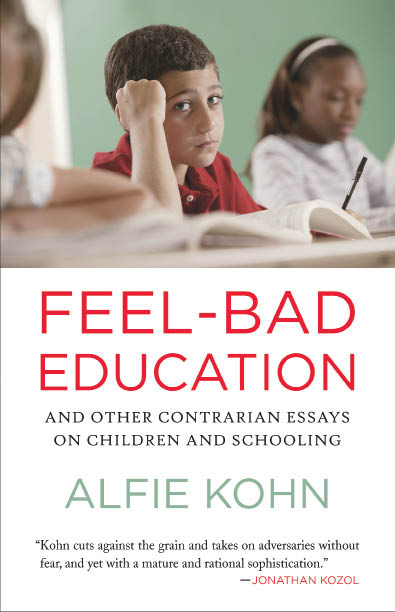Feel-Bad Education
And Other Contrarian Essays on Children and Schooling
Alfie Kohn
Beacon Press, Boston
To the memoryand enduring legacyof two thinkers who have influenced so many of us: Ted Sizer (19322009) and Jerry Bracey (19402009)
Contents
Introduction. Well, Duh!: Obvious Truths That We Shouldnt Be Ignoring
The field of education bubbles over with controversies. Its not unusual for intelligent people of good will to disagree passionately about what should happen in schools. Sometimes these disagreements result from how the available evidence is interpreted, and sometimes theyre due to divergent visions regarding the purpose of schooling or what constitutes an ideal society.
But there are certain precepts that arent really debatablethat just about anyone would have to acknowledge are true. While many such statements are banal, I want to argue that some are worth noticing, because in our school practices and policies, we tend to ignore the implications that follow from them. Its both intellectually interesting and practically important to explore such contradictions: If we all agree that a given principle is true, then why in the world do our schools still function as if it werent? Ill identify about a dozen examples of this phenomenon, mindful that it wont be possible to explore all the specific issuesand more controversial implicationsthat are entangled within them. Not so coincidentally, many of these questions anticipate the very topics that are explored later in this book.
I should also mention that several thinkers whose work I admire were kind enough to add to my duh list. I wasnt able to use all their suggestions, but many stimulated my thinking about the items that I did include and helped me to reframe them. In any case, the hazard of creating such a list is that Duh will inevitably become Doh! as more examples come to mind immediately after its sent off to the printer. You, meanwhile, will undoubtedly think of still others, some of which may be even more obvious.
1. Much of the material that students are required to memorize is soon forgotten. The truth of this statement will be conceded (either willingly or reluctantly) by just about everyone who has spent time in schoolin other words, all of us. A few months, or sometimes even just a few days, after having committed a list of facts, dates, or definitions to memory, we couldnt recall most of them if our lives depended on it.
Everyone knows this, yet a substantial part of schoolingparticularly in the most traditional schoolscontinues to consist of stuffing facts into students short-term memories. Instruction and assess-ment are largely geared to the forced ingestion of facts and data, even though this is useless for educational purposes, as literacy expert Frank Smith has written. What we remember from fruitless efforts to memorize are the stress and the failure inevitably involved.
The more closely we inspect this model of teaching and testing, the more problematic it reveals itself to be. First, theres the question of what students are made to learn, which often is more oriented to factual material than to a deep understanding of ideas. (For more on this, see item #2 below.) Second, theres the question of how students are taught, with a focus on passive absorption rather than active meaning-making: listening to lectures, reading predigested summaries in textbooks, and rehearsing material immediately before being required to cough it back up. Third, theres the question of why a student has learned something: Knowledge is less likely to be retained if it has been acquired so that one will perform well on a test, as opposed to learning in the context of pursuing projects and solving problems that are personally meaningful.
Even without these layers of deficiencies with the status quo, and even if we grant that remembering some things can be useful, the fundamental question echoes like a shout down an endless school corridor: Why are kids still being forced to memorize so much stuff that we know they wont remember?
Corollary 1a : Because this appears to be true for adults, too, why do most professional development events for teachers resemble the least impressive classrooms, with experts disgorging facts about how to educate?
2. Just knowing a lot of facts doesnt mean that one is smart. Even students who do manage to remember some of the factual material that they were taught are not necessarily able to make sense of those bits of knowledge, to understand connections among them, or to apply them in inventive and persuasive ways to real-life problems. To cite an old adage (which was also cited approvingly by Albert Einstein): Education is that which remains if one has forgotten everything he learned in school. Words like smart and intelligent are routinely used to describe people who merely know a lot of facts, yet I think most people will admit that theres a difference.
In fact, the cognitive scientist Lauren Resnick goes even further: Its not just that knowing (or having been taught) facts doesnt in itself make you smart. A mostly fact-oriented education may actually interfere with your becoming smart. Thinking skills tend to be driven out of the curriculum by ever-growing demands for teaching larger and larger bodies of knowledge, she writes. Yet schools continue to treat students as empty glasses into which information can be pouredand public officials continue to judge schools on the basis of how efficiently and determinedly they pour.
3. If kids have different talents, interests, and ways of learning, its probably not ideal to teach all of them the same things or in the same way. Its tempting to assume that one-size-fits-all instruction persists only because there are too many students in each classroom for teachers to customize what, or how, theyre teaching. This explanation, however, doesnt quite match reality.
First, some teachers manage to adjust the curriculum to the needs of each student quite effectively despite class sizes far greater than would be ideal. Second, many people seem to value uniformity and consistency in teachingor overlook the significance of differences among studentsto the point that a lockstep curriculum and a single set of (usually traditional) teaching strategies are used even when this is avoidable. Lots of teachers will do pretty much the same thing next year that they did this year, even though theyre teaching different students. Many schools insist on aligning the curriculum so that whats being taught in all the fifth-grade classrooms is virtually identical. (The degree of predictability that this arrangement ensures is convenient for the sixth-grade teachers who will inherit these kids, but why should that consideration trump whats best for the kids themselves?) Finally, policy makers mandate a uniform set of standards and curriculum topics for all students of the same age across a district, across a state, and now, it appears, throughout the entire country (see chapter 15, Debunking the Case for National Standards). Most of us understand on some level that one size is more likely to thwart than to fit all, yet education policies proceed as if that werent the case.
4. Students are more likely to learn what they find interesting. Theres no shortage of evidence for this claim if you really need it. One of many examples: A group of researchers found that childrens level of interest in a passage they were reading was thirty times more useful than its difficulty level for predicting how much of it they would later remember. But this should be obvious, if only because of what we know about ourselves. Its the tasks that intrigue us, that tap our curiosity and connect to the things we care about, that we tend to keep doingand get better at doing. So, too, for kids.


